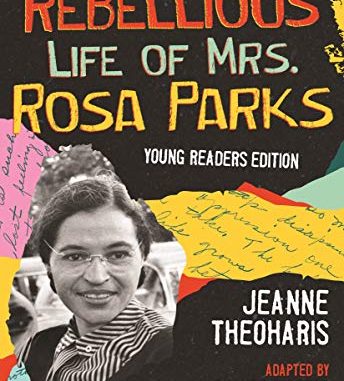
In celebration of Black History Month, the Brooklyn Public Library partnered with the Center for Brooklyn History (CBH) to host a Zoom Webinar on Feb. 22 titled, “The Battle for Black History: The Case of Rosa Parks,” in hopes of educating people on the ‘true story’ of the renown Civil Rights activist.
The webinar was led by the two panelists, Jeanne Theoharis (author of The Rebellious Life of Mrs. Rosa Parks) and Yoruba Richen (Director of this book’s film adaptation) who spoke about the common perceptions of Rosa Parks and how the inaccuracies in these perceptions, though mostly positive, have actually worked against Parks and her legacy.
While the well-known story of Rosa Parks refusing to get up from her bus seat, as part of the Montgomery bus boycott, is well documented due to her display of bravery and defiance, it has somewhat become synonymous with Parks as if it were her only effort in the fight for African American rights during the Civil Rights Movement. Theoharis and Richen argue that this is a gross simplification of the true extent of Parks’ activism outreach.
“Because of the way activists such as Rosa Parks and Martin Luther King Jr. are sanitized and honored… we strip them down at the same time,” said Theoharis.
One interesting note in the webinar was when Richen discussed the way in which Parks would be interviewed, even years after the bus boycott when she had also participated in other movements and marches.
“They would never ask her about anything other than the bus boycott and her experience,” Richen said.
Much of the webinar audience was engaged in Parks’ post-bus boycott years. Speakers discussed how Parks lost her job weeks after the bus boycott and she and her husband had to move to Detroit just eight months afterward.
Jacquelyn Fernandez, a Brooklyn resident and webinar participant, spoke about what her thoughts surrounding Parks were before and after the webinar.
“In school, I only ever heard about how Rosa Parks sat on the bus and refused to get up when the white police officer told her to get up. I never knew that she had moved to Detroit. I would have never guessed that she was as involved in politics and talks of race rights as much as she actually was,” Fernandez said.
Richen echoed these sentiments.
“The Disneyfication (the commercial transformation of things or environments into something simplified, controlled, and ‘safe’) of the lives of these Civil Rights activists strips them of the reality of their struggles and sacrifices,” Richen said.

